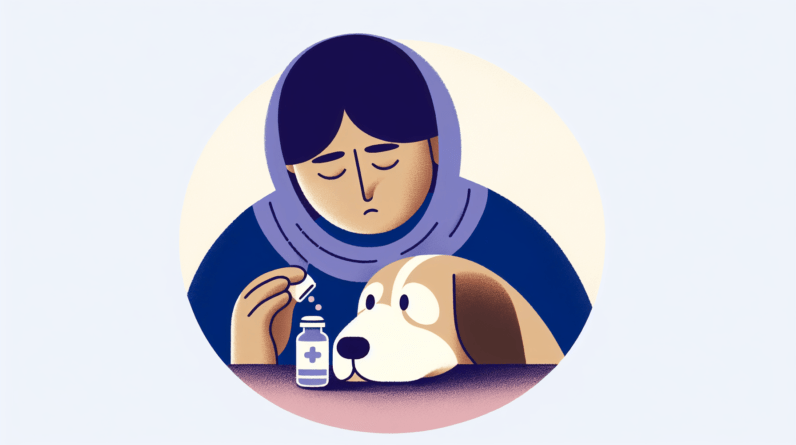
Are you curious about the most common vaccines? Well, look no further! In this article, we will explore the top five most popular vaccines and shed light on their importance in safeguarding our health. From influenza to measles, these vaccinations play a crucial role in disease prevention and ensuring the well-being of individuals and communities. So, join us on this informative journey as we unveil the vaccines that have become household names in the world of healthcare.

Influenza Vaccine
Description
The influenza vaccine, commonly known as the flu shot, is a vaccine designed to protect against the influenza virus. It is typically administered through an injection and contains inactivated influenza viruses. These viruses stimulate the immune system to produce antibodies, which help to fight off the flu.
Importance
The influenza vaccine is important for several reasons. Firstly, the flu can cause severe illness and even death, particularly among vulnerable populations such as the elderly, young children, and individuals with weakened immune systems. By getting vaccinated, you can significantly reduce your risk of contracting the flu and experiencing its potentially severe consequences.
Secondly, the flu is highly contagious and can easily spread from person to person. By getting vaccinated, you not only protect yourself, but you also help to limit the overall spread of the virus within your community. This is especially crucial during flu seasons when outbreaks can occur, overwhelming healthcare systems and putting a strain on resources.
Who should get it
The influenza vaccine is recommended for almost everyone aged six months and older. It is particularly important for individuals who have a higher risk of developing complications from the flu, including the elderly, young children, pregnant women, individuals with chronic medical conditions, and healthcare workers.
Side effects
Common side effects of the influenza vaccine are generally mild and can include soreness at the injection site, low-grade fever, and muscle aches. These side effects typically subside within a day or two. Serious side effects are very rare.
Effectiveness
The effectiveness of the influenza vaccine can vary from year to year, as the flu virus strains present in circulation may change. However, even when the vaccine is not a perfect match to the circulating strains, it still offers valuable protection by reducing the severity of flu symptoms and lowering the risk of complications.
It is important to note that the influenza vaccine does not provide immediate immunity. It takes about two weeks for the vaccine to offer full protection. Additionally, the vaccine needs to be administered annually, as the strains of the influenza virus can change from one season to the next.
Measles, Mumps, and Rubella (MMR) Vaccine
Description
The MMR vaccine is a combination vaccine that protects against three highly contagious diseases: measles, mumps, and rubella. It is administered through an injection and contains weakened forms of the viruses that cause these diseases.
Importance
The MMR vaccine is incredibly important for preventing the spread of measles, mumps, and rubella, all of which can lead to serious complications. Measles, for example, can cause pneumonia, encephalitis (swelling of the brain), and in some cases, even death. By getting vaccinated, you not only protect yourself but also contribute to the overall reduction of these diseases within the population.
Who should get it
The MMR vaccine is recommended for all individuals aged 12 months and older who have not received the vaccine previously or have not had the diseases. It is especially crucial for infants, children, and young adults to receive the vaccine, as they are more susceptible to complications from these diseases.
Side effects
Most individuals who receive the MMR vaccine experience no side effects. However, some may experience mild symptoms such as a low-grade fever, rash, or soreness at the injection site. Serious side effects are rare.
Effectiveness
The MMR vaccine is highly effective in preventing measles, mumps, and rubella. In fact, two doses of the vaccine are about 97% effective in preventing measles and rubella and about 88% effective in preventing mumps. It is essential to receive both recommended doses to ensure optimum protection.
Tetanus, Diphtheria, and Pertussis (TDAP) Vaccine
Description
The TDAP vaccine is a combination vaccine that provides immunization against three bacterial diseases: tetanus, diphtheria, and pertussis (whooping cough). It contains inactivated toxins or components of the bacteria that cause these diseases.
Importance
The TDAP vaccine is crucial for preventing serious illness and complications associated with tetanus, diphtheria, and pertussis. Tetanus can lead to muscle stiffness, lockjaw, and in severe cases, breathing difficulties and even death. Diphtheria can cause severe respiratory problems, heart failure, or nerve damage. Pertussis, commonly known as whooping cough, can be particularly dangerous for infants, potentially leading to hospitalization or, in rare cases, death. Getting vaccinated protects you and helps reduce the spread of these diseases.
Who should get it
The TDAP vaccine is recommended for adolescents and adults. In addition to the routine childhood vaccinations, a booster shot every 10 years is advised to maintain an adequate level of protection against tetanus, diphtheria, and pertussis. It is especially important for parents, grandparents, and other caregivers to be up to date with their TDAP vaccination to protect young children who are not yet fully vaccinated.
Side effects
Common side effects of the TDAP vaccine include pain, redness, or swelling at the injection site, mild fever, and body aches. These side effects are usually temporary and resolve on their own. Serious side effects are rare.
Effectiveness
The TDAP vaccine is highly effective in preventing tetanus, diphtheria, and pertussis. It provides long-lasting immunity against these diseases, although periodic booster shots are necessary to maintain protection. By receiving the TDAP vaccine, you can significantly reduce your risk of infection and help prevent the transmission of these bacterial diseases.
Human Papillomavirus (HPV) Vaccine
Description
The HPV vaccine protects against human papillomavirus, a common sexually transmitted infection. HPV can lead to various types of cancers, including cervical, vaginal, and anal cancers, as well as genital warts. The vaccine contains small amounts of proteins from the most common HPV types that cause these conditions.
Importance
The HPV vaccine is crucial for preventing HPV infection and the related risks of developing cancer or genital warts. Cervical cancer, for instance, is the fourth most common cancer in women globally, but with the widespread use of the HPV vaccine, it is now considered largely preventable. By getting vaccinated, you not only protect yourself but also contribute to the reduction of HPV-related diseases within the population.
Who should get it
The HPV vaccine is recommended for both males and females between the ages of 9 and 26. Ideally, it is administered before sexual activity begins, as the vaccine is most effective when given before exposure to the HPV virus. However, even those who are already sexually active or have been previously infected with certain HPV types can still benefit from the vaccine, as it may protect against other HPV strains not yet encountered.
Side effects
The most common side effects of the HPV vaccine include pain or soreness at the injection site, mild fever, and headaches. These side effects are typically short-lived. Serious side effects are extremely rare.
Effectiveness
The HPV vaccine is highly effective in preventing the HPV types it targets. It provides strong and long-lasting protection against the most common HPV strains responsible for cervical cancer and genital warts. By getting vaccinated, you can significantly lower your risk of developing HPV-related cancers and other associated diseases.

Pneumococcal Vaccine
Description
The pneumococcal vaccine protects against infections caused by the bacterium Streptococcus pneumoniae, commonly known as pneumococcus. It is available in several different formulations, including conjugate and polysaccharide vaccines, which offer protection against various strains of the bacteria.
Importance
Pneumococcal infections can lead to serious illnesses such as pneumonia, meningitis, and bloodstream infections. These diseases can be particularly severe in young children, older adults, and individuals with weakened immune systems. By getting vaccinated, you can significantly reduce your risk of developing pneumococcal infections and experiencing their potentially severe complications.
Who should get it
The pneumococcal vaccine is recommended for individuals of all ages, starting from infancy. It is particularly important for young children, adults aged 65 and older, and individuals with certain underlying medical conditions such as lung disease, heart disease, diabetes, or a weakened immune system. The specific recommendations may vary based on age and individual risk factors, so it is essential to consult with a healthcare provider.
Side effects
Common side effects of the pneumococcal vaccine may include tenderness, redness, or swelling at the injection site, low-grade fever, and mild fatigue. These side effects are typically mild and go away on their own within a few days. Serious side effects are rare.
Effectiveness
The pneumococcal vaccine is highly effective in preventing pneumococcal infections. It has shown to be particularly effective in preventing severe diseases such as meningitis and bloodstream infections. The vaccine provides long-lasting protection, although periodic booster shots may be recommended in certain circumstances.
In conclusion, vaccines play a crucial role in protecting against various diseases. The influenza vaccine helps prevent the flu, the MMR vaccine guards against measles, mumps, and rubella, the TDAP vaccine provides protection against tetanus, diphtheria, and pertussis, the HPV vaccine guards against human papillomavirus, and the pneumococcal vaccine helps prevent pneumococcal infections. By getting vaccinated, you not only safeguard your own health but also contribute to the well-being of your community by reducing the overall spread of these diseases. Be sure to consult with your healthcare provider to ensure you receive the appropriate vaccinations based on your age, medical history, and specific risk factors. Stay proactive about your health and protect yourself and those around you through immunization.







